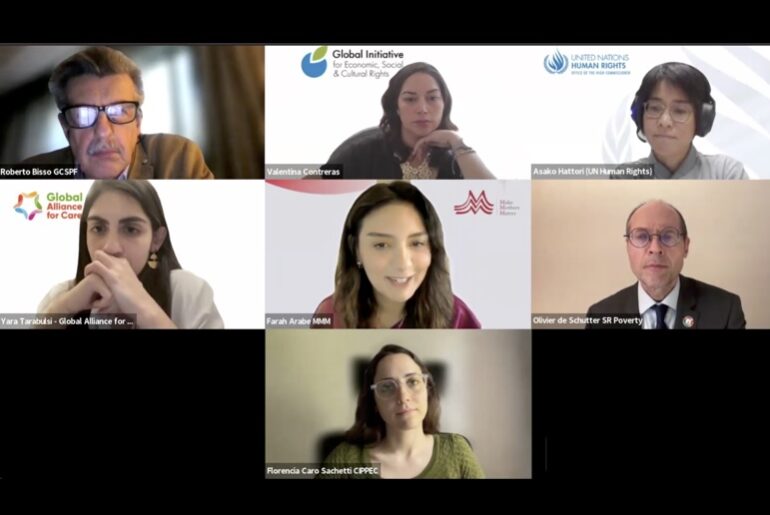No economic reform or policy should penalize mothers and families
01.03.19
UN Geneva, Human Rights Council - For too long, families have been adjusting to the economy and the labour market. It is time the economy adjusts to families. This was, in essence, the message delivered by MMM at Human Rights Council during the discussion on the Guiding principles on the iHuman Rights impact assessment of economic reforms.

Current economic thinking does not take into account the value of domestic and unpaid family care work and its significant contribution to society. Women, especially when they are mothers, still globally carry out 3⁄4 of this essential work1, which also underpins the whole economy.
We believe it is time to make the unpaid work of caring for children, older persons, and other dependents, visible and taken into account by policymakers, especially when devising economic policy.
This is exactly what target 4 of SDG 5 is all about: Recognize and value unpaid care and domestic work through the provision of public services, infrastructure, and social protection policies and the promotion of shared responsibility within the household and the family as nationally appropriate.
And according to McKinsey, it is also smart economics: addressing the issue of unpaid care work is a key step towards women’s full participation in the economy.
We at MMM also call on States to take a long-term perspective – and assess the impact of economic reforms and policy on families. Parents must be able to provide adequate nurturing care and education for their children, crucially during the early formative years. Children have the right to be cared for, nurtured and educated to reach their full development potential. They are after all, the future work force.
Read the full MMM Oral Statement on the need to assess the impact of economic reforms on mothers and families
The oral statement was delivered during the discussion on the Guiding Principles on Human Rights Impact assessments of economic reform policies, which were presented during the 40th Session of the Human Rights Council by the Independent Expert on the effects of foreign debt and other related international financial obligations of States on the full enjoyment of human rights, particularly economic, social and cultural rights.
The New EU Gender Equality Roadmap : A Call for Inclusion of Mothers
04.03.25
The European Commission’s initiative on a new Gender Equality Roadmap post-2025, marks a significant step forward in addressing gender disparities across the European Union. Make Mothers Matter (MMM
Breaking the Cycle: Gender Equality as a Path to Better Mental Health
18.03.25
The Council of the European Union has taken a decisive step in recognising the vital connection between gender equality and mental health.
Europe Must Listen to Mothers: Our landmark report heads to the European Parliament
28.08.25
On 22 September 2025, the voices of mothers will take centre stage in Brussels. For the first time, Make Mothers Matter (MMM) will present its State of Motherhood in Europe








